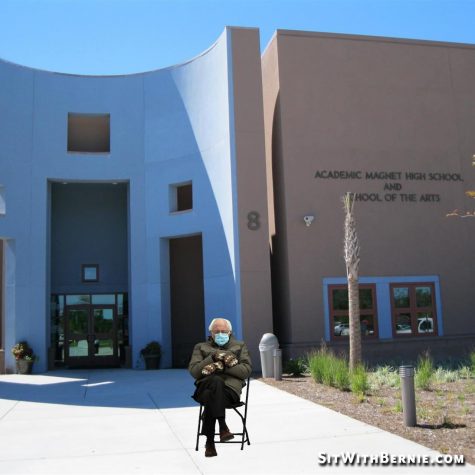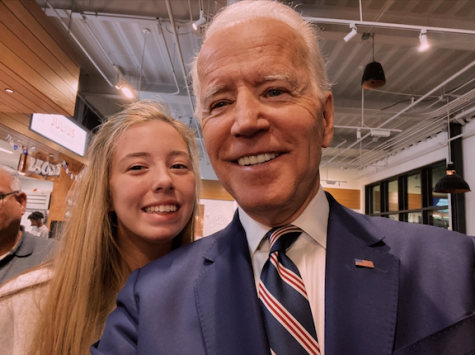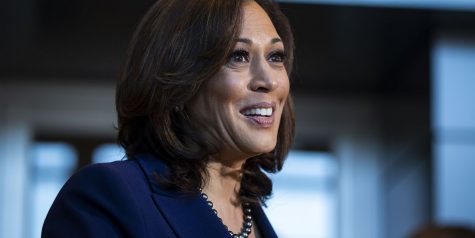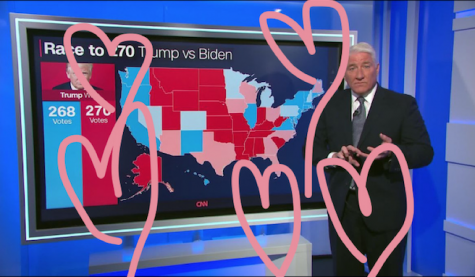World Converges on S.C.
MSNBC, CNN, CSPAN, and CBS were filming daily shows around Charleston
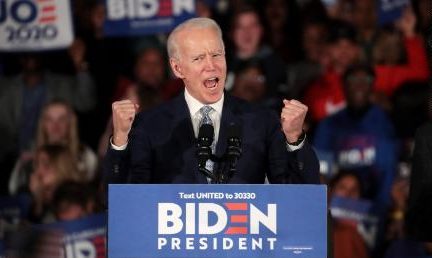
SC’s victor, former VP Joe Biden
If you keep up with politics at all, or honestly just were awake last week, you know that practically everyone who is someone made their way through South Carolina at the end of February. The 29th marked the highly anticipated South Carolina Primary for the 2020 Democratic Presidential Nomination, and yours truly had the opportunity to vote for the very first time. All of this came on the heals of Trump having visited North Charleston on Friday, where he was met with a mixed reaction. Together, the perfect storm of politics was created right around the Lowcountry.
Starting early in the week, MSNBC, CNN, CSPAN, and CBS were filming daily shows around Charleston with occasional broadcasts originating from elsewhere in the state. CNN aired a series of town halls on Monday night (Sanders, Buttigieg, and Steyer) and Wednesday night (Bloomberg, Biden, Klobuchar, and Warren), with CBS producing a full debate with all seven candidates from the Gaillard on Tuesday. Other events were the First in the South Dinner on Monday as well as the Spouse’s Luncheon on Tuesday and news coverage throughout the week. But to understand the weight of last week, we need to break down two monumental events that happened before our eyes.
Tuesday night’s Democratic Debate was the first aired by CBS this election season. Co-sponsored by the Congressional Black Caucus Institute, the event was roughly two hours in length and featured from audience left to right: Mayor Michael Bloomberg, Mayor Pete Buttigieg, Sen. Elizabeth Warren, Sen. Bernie Sanders, VP Joe Biden, Sen. Amy Klobuchar, and Tom Steyer. Most consistent debate viewers would agree this was the most contentious of this election cycle, but there was no absolute loser as compared to the Nevada debate. Once again, Bloomberg, who was not actually on the South Carolina ballot, faced a lot of criticism about his time as mayor of NYC and managing his business, but he came in more prepared this time around. Likewise, Elizabeth Warren was clearly aggressive yet not as successful as in previous contests.
One of the apparent winners of the night was Indiana’s Pete Buttigieg. Pete, who has spent much of the past few months displaying his contrasts to fellow Hoosier Vice President Mike Pence, showed time and again how he also differs from further left candidates such as Senators Warren and Sanders. Buttigieg continued to show off his diplomatic yet powerful communication skills, even adding an early joke while plugging his campaign site for donations. On the ideological flip side, Sanders also weathered a few punches from the moderates and some poor crowd reception to show of his passion for the American people and his belief in his ideas. Even if you don’t believe in his policies, there is a lot to say for his confidence and straightforward responses.
Though Warren landed some verbal punches and Bloomberg absorbed them while Amy Klobuchar stood by, all ended up overshadowed by the frontrunners and most importantly, the moderators. Now, don’t get me wrong, the moderators should not have been the story. But they were. CBS used morning anchor Gayle King and evening anchor Nora O’Donnell as the principle moderators with Margaret Brennan, Major Garrett and Bill Whitaker also assisting. Though the latter three only popped up for a few questions, none of the five were able to keep the candidates or audience in check. The number of responses that went over the allotted time far outpaced those within the limit, and the moderators only gently urged candidates to sum up their points in a timely manner. Likewise, every member of the audience got in as many cheers and jeers as they desired with no penalties or even an on-air mention. The result was all seven participants giving concurrent answers while viewers at home grimaced at the cacophony. Finally, when moderators did assert themselves, it was only for an abrupt topic change even if participants were still speaking. Finally, whether it was a personal decision by CBS’ chosen five or a company direction, candidates were weirdly not heard from for spurts during the show. For instance, our midwestern moderates Buttigieg and Klobuchar disappeared for about twenty minutes after the first hour.
Vice President Joe Biden, thought by many to be the frontrunner in the state, was as expected on Tuesday. He parlayed a discussion on Tom Steyer’s record with private prisons into a great show of passion and pushed through a few stumbles to come out no worse than he had been following a couple tough competitions. However, SC-6 Congressman and House Majority Whip James Clyburn gave the former VP a huge endorsement Wednesday, which was quickly followed up with Biden’s emotional CNN Town Hall downtown.
Then came Saturday. Of course, it my first chance to vote in an official election, and the voting debut of many high school juniors and seniors. Though I won’t reveal who I voted for, I will say my allegiances have since changed. Polls opened at 7 AM (when I got there) and closed at 7 PM, with well over five hundred thousand South Carolinians casting their votes in the Democratic Primary (as SC chose not to have a Republican Primary and will instead give their GOP delegates to Trump). Now, the results were unsurprising to many but the implications were far larger and more immediate than anyone could have imagined.
Biden won the contest with an astounding 48.4% while Sanders came in second with 19.9%. Since they were the only candidates to clear the 15% viability threshold, Biden got 39 of the pledged SC delegates for the Democratic Convention while Sanders got the other fifteen. Lower down, Tom Steyer (11.3%) finished third, his best result in any early state. After Steyer were Buttigieg (8.2%), Warren (7.1%), Klobuchar (3.2%), and Tulsi Gabbard (1.3%). Bloomberg wasn’t registered in time to be on the SC ballot, but several withdrawn candidates had registered for the contest well in advance and still received votes. For instance, Andrew Yang brought in 0.2% while Michael Bennet, Cory Booker, and John Delaney each got 0.1% of the vote.
However, in the immediate aftermath of the results being released, Tom Steyer suspended his campaign and is likely to remain in South Carolina working with local and statewide candidates. The following day, Buttigieg ended his own campaign for the nomination with Amy Klobuchar following suit on Monday. The latter two have endorsed Biden in an attempt to align the moderate votes they were splitting all behind one candidate. As it stands right now (Pre-Super Tuesday) Sanders has 60 pledged delegates from all four states while Biden has 54 and Buttigieg technically still has his 26 that came mainly from winning Iowa.
Coming up next is Super Tuesday, when fourteen states and one territory will hold their own primaries. Expect to see Biden and Sanders accelerate away from the rest of the field towards the necessary 1,991 delegates needed for the nomination as other candidates continue to drop from the race.



